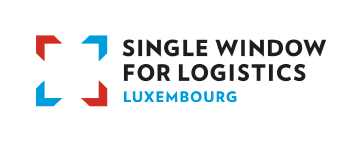Definition
Food refers to all products related to nutrition allowing human beings to function or survive. A food product is a substance intended to be ingested by a human being.
European regulations use the terms "food" or "foodstuffs".
Food may be of animal, plant, fungal, bacterial, mineral or chemical origin.
The term food includes the following:
- plants and plant products
For example: fresh, dry or frozen fruits and vegetables, tea, coffee, cacao, edible grains, spices, nuts.
- animal products
For example: meat, milk, honey, eggs, fish
- live animals that have been prepared in order to be consumed
For example: oysters, lobsters
- processed products
For example: prepared dishes or prepackaged foods
- beverages including alcoholic beverages
- liquid foods
For example: oil, vinegar
- chewing gum
- novel food, i.e. new substances that historically were not consumed by human beings
For example stevia, chia, noni juice
- substances, including water or food additives, intentionally added to food during their manufacturing, preparation or processing.
The term food however excludes feed, live animals, drugs, unharvested plants, residues and contaminants, cosmetics, tobacco and tobacco products, narcotics and psychotropic substances.
Obligations and controls
Luxembourg businesses and intermediaries in the food sector must be certified and comply to regulatory requirements notably concerning hygiene.
Food products must also comply to standards concerning composition, traceability, labeling, etc.
Import controls are conducted to verify the compliance of goods. Depending on the type of food and the country of origin, it may be subject to routine control or reinforced control and its arrival may have to be pre-notified in the TRACES system before arrival.
Food of animal origin, plants and plant products, always have to be pre-notified in TRACES.NT.
Fresh fruits and vegetables that have not undergone any processing (chopping, etc.) are, moreover, subject to phytosanitary controls to verify the absence of harmful pests that can affect plants.
A Rapid Alert System for Food and Feed (RASFF) is used to urgently report and notify Member States of public health risks detected during controls.
For export, foodstuffs must comply with the health and regulatory requirements of the destination country.
Related documents
Imported foods must be accompanied by an health certificate. Some imported plants and plant products must be accompanied by a phytosanitary certificate.
Export of food may require beforehand a free sale certificate or a health certificate at the time of export depending on the requirements of the destination country.
Related procedures
The following procedures described on the Guichet.lu website are used to submit requests to the competent Luxembourg administration depending on the type of food:
- request for a health certificate for the export of food of animal origin from the Administration of Veterinary Services (ASV)
- request for a phytosanitary certificate for the export or re-export of plants, plant products and wood from the Administration of Agricultural Technical Services (ASTA)
- request for an intra-EU phytosanitary communication document to transport plants and plant products within the European Union in order to export them to third countries issued by the ASTA
- request for a plant passport for the transport of plants and plant products within the European Union from the ASTA
- request for a health or free sale certificate for the export of food of non-animal origin or food contact materials from the Food Safety Unit.
Related organizations
Foodstuffs of non-animal origin, compound products or processed food products of plant origin(chopped, frozen, dehydrated, etc.) are controlled by the Food Safety Unit.
Foods of animal origin (meat, milk, butter, eggs) as well as compound products with predominance of ingredients of animal origin (for example: ice cream, pizza, lasagna, etc.) are controlled by the Administration of Veterinary Services.
Unprocessed fruits and vegetables are controlled by the Food Safety Unit, but are also controlled by the Administration of Agricultural Technical Services for phytosanitary aspects.


